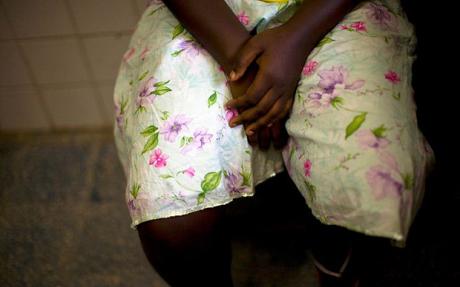
Rape is common in Liberia, West Africa. 100 cases a month, and age doesn’t seem to be an issue. According to Medecins Sans Frontieres (Doctors Without Borders), that runs a local clinic there, 80% of all rapes are children, some as young as 18 months.
Some blame the current prevalence of rape on the civil wars that Liberia endured from 1989 to 2003, where men took advantage of the civil strife to have their way with women. That whole boorish, booty of war mentality, that feeling of entitlement which doesn’t seem to have shifted in any way, in spite of the fact there has been relative peace in that country for 6 years.
“During the war the fighters got used to raping and going free. They had the guns; they could not be arrested or executed for the acts, so it became a habit,” said Abel Grant, a Liberian sociologist.
“Now that the war is over they are no longer ‘untouchable’, but they cannot stop it,” he added.
Sadly many of the women and girls refuse to go public for fear of the stigma attached to being raped. As is often the case, in most countries, the burden of proof is on the woman. And the court systems, at least in the U.S., make the ordeal even more harrowing. It’s almost like being raped twice. The defense will often try to portray the woman as loose, or that the sex was consensual. Oftentimes, the perpetrator is known to the victim, which makes it even more difficult to admit to having been raped.
“If you look at our statistics, most of the perpetrators are not strangers. They are known and they are in the community with them survivor.”
MSF in Liberia is pushing a campaign called “Rape is a hospital and clinic business” to encourage rape survivors to heal themselves by making use of its free medical and counselling services.
Apparently the psychological scars are harder to deal with the older one is, so it’s of tantamount importance to get these women therapy, though I firmly believe that even the young children need ongoing therapy, as well.
“When they are children, sometimes they cope and within one week or two they go on,” said Elias Abi-Aad, a psychologist for MSF.
“When they become adults, any incident can remind them of what they went through. For the adult, it is more difficult to live with.”
It’s wonderful they have Doctors Without Borders there to help deal with this issue, and help the victims heal, the root of the problem isn’t being addressed: the men who feel they have the right to rape women and young children without impunity. Liberia needs to start making men pay for these heinous crimes.



